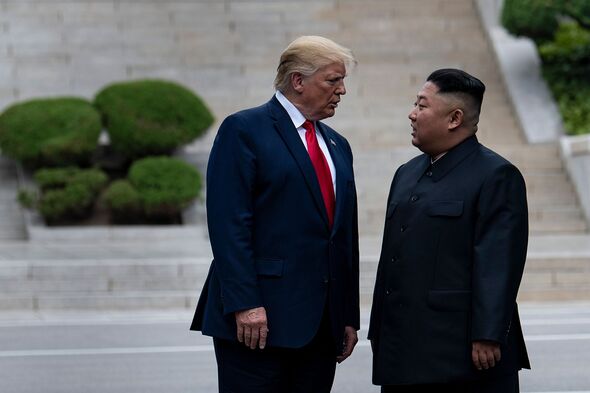North Korea has unequivocally stated its intention to maintain its status as a nuclear weapons state, issuing a stern warning to the United States and the broader international community. This defiant declaration underscores Pyongyang’s unwavering commitment to its advanced nuclear arsenal, asserting its position as a sovereign nation possessing formidable nuclear capabilities.
The Democratic People’s Republic of Korea (DPRK) has enshrined its nuclear status within its supreme law, a move presented as a reflection of the unanimous will of its people. Any efforts to challenge or deny the DPRK’s established position as a legitimate nuclear power, which is supported by a robust nuclear deterrent, will be met with resolute rejection, according to official statements.
Despite persistent international pressure and a comprehensive regime of sanctions, North Korea has significantly accelerated its nuclear program. This rapid development continues unabated, raising serious concerns about regional stability and global non-proliferation efforts, as the nation prioritizes its perceived security needs above all.
Pyongyang consistently justifies its nuclear ambitions as a necessary measure for self-defense, portraying its arsenal as a crucial nuclear deterrent against what it perceives as hostile policies and military threats from the United States and South Korea. This strategic posture shapes its foreign policy and domestic narrative, reinforcing its resolve.
The implications of the DPRK’s steadfast nuclear stance are far-reaching, potentially reshaping the geopolitical landscape of East Asia. This unwavering commitment complicates diplomatic efforts aimed at denuclearization, forcing international actors to re-evaluate their approaches to managing the escalating tensions on the Korean Peninsula.
Historically, international efforts to curb North Korea’s nuclear proliferation have faced considerable obstacles, ranging from stalled negotiations to the ineffectiveness of punitive measures. The continuous advancement of the North Korea nuclear program highlights the limitations of past strategies and the complex challenges inherent in dealing with a nation that prioritizes its DPRK nuclear status as fundamental to its survival.
Looking ahead, the international community faces the arduous task of formulating a coherent and effective response to North Korea’s explicit nuclear declaration. The emphasis on its nuclear deterrent capabilities means that future diplomatic engagements will likely need to navigate Pyongyang’s firm position, seeking pathways that balance security concerns with opportunities for dialogue and de-escalation, all while considering the pervasive impact of international sanctions.






Leave a Reply